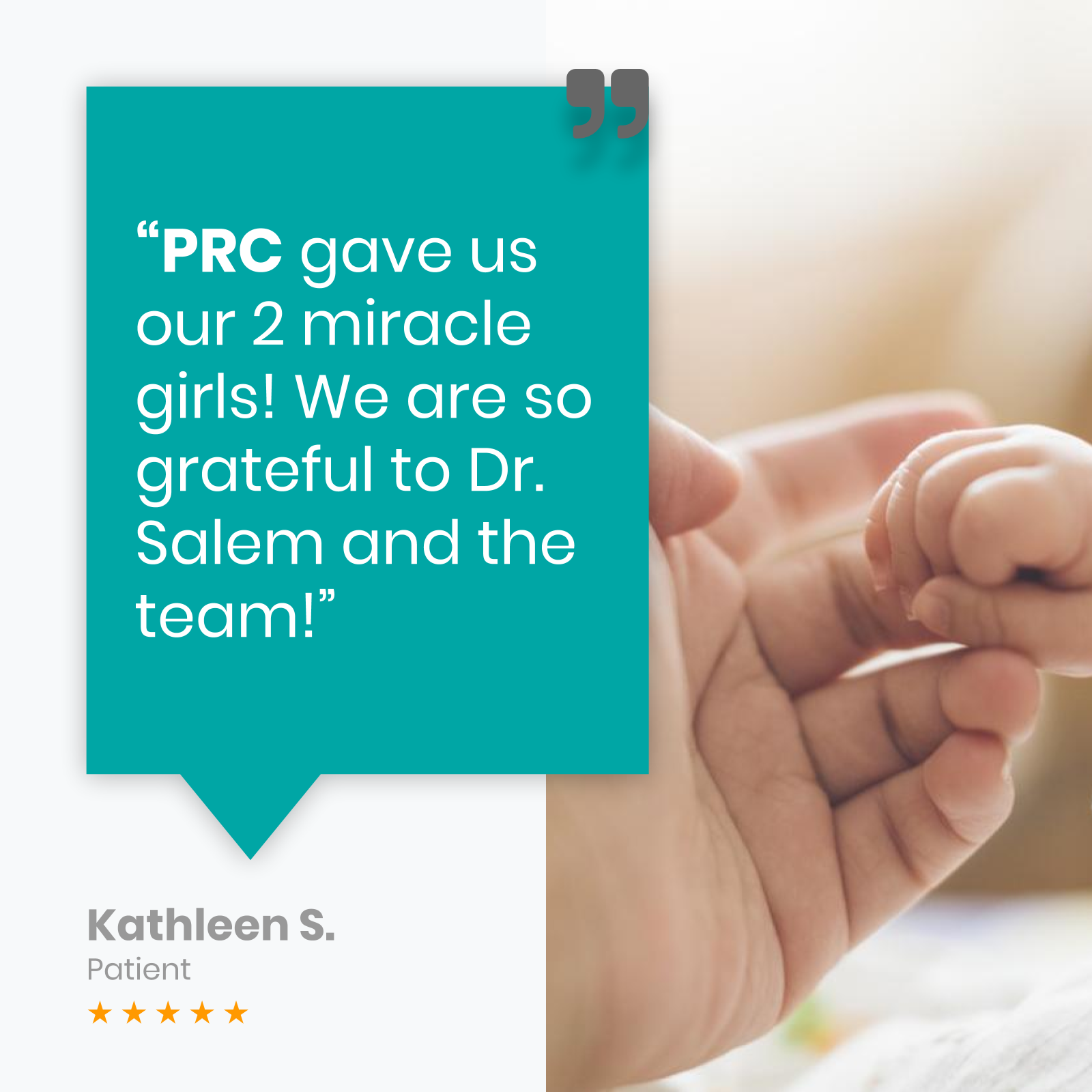At Pacific Reproductive Center, we recognize the complexities associated with ovarian hyperstimulation syndrome (OHSS) and are committed to providing effective care. Our dedicated team is prepared to assist you in navigating the challenges associated with ovarian hyperstimulation treatment, helping you achieve a healthy pregnancy.
What Is Ovarian Hyperstimulation Syndrome (OHSS)?
OHSS can be a concern for women undergoing fertility treatments like in-vitro fertilization (IVF). This condition can lead to symptoms ranging from mild abdominal discomfort to severe complications such as fluid buildup, blood clots, and kidney dysfunction.
Severe cases of OHSS are rare but can pose significant health risks, making careful monitoring and management essential during fertility treatments.
Understanding OHSS and How It Affects the Body
OHSS is an overresponse to the influx of hormones, generally from assisted reproductive treatments featuring hormone injections that facilitate ova development. The condition causes ovarian inflammation which can lead to uncomfortable and sometimes dangerous symptoms.
What Causes Ovarian Hyperstimulation Syndrome?
The exact cause of OHSS is not yet fully understood. However, it is widely recognized that elevated levels of human chorionic gonadotropin (HCG) play a significant role.
HCG is a hormone that supports the thickening of the uterine lining, making it essential in pregnancy’s early stages. It is produced by trophoblast tissues within embryos and later by the placenta. In fertility treatments, HCG is often administered as part of the protocol to trigger ovulation.
However, for some women, this hormone over-activates the ovaries, leading to OHSS. The condition is more likely to occur in cycles where high doses of HCG are used or when there is a large number of developing follicles in the ovaries.
Signs and Symptoms of OHSS
The symptoms of OHSS typically begin to appear a few days to a week after the hormone injections, and they can take up to two weeks or more to resolve. The severity of the symptoms can vary widely, with some women experiencing only mild discomfort while others may develop severe complications.
Mild to Moderate Symptoms
Mild symptoms of OHSS are relatively common and often resemble those of premenstrual syndrome (PMS). These symptoms can include the following:
- Minor to moderate abdominal pain
- Unusual bloating
- Digestive discomfort, such as diarrhea, nausea, or vomiting
These mild symptoms generally last for about a week and are not usually cause for concern. However, if symptoms persist or worsen, it is important to inform a healthcare provider.
Severe OHSS Symptoms
In more severe cases, OHSS can lead to significant health issues that require immediate medical attention. Severe symptoms include the following:
- A distended abdomen
- Rapid weight gain, such as more than two pounds in a 24-hour period
- Intense abdominal pain or cramps
- Persistent and severe nausea
- Shortness of breath
- The formation of blood clots
- Difficulty urinating or a significant decrease in urine output
These severe symptoms indicate a more serious form of OHSS and should be addressed promptly by a medical professional.
Risk Factors and Causes of OHSS
While OHSS can occur without any identifiable risk factors, certain conditions can increase a woman’s likelihood of developing the syndrome. These risk factors include the following:
- Being 35 years old or younger
- Having a low body weight
- Elevated estrogen levels prior to hormone injections
- A history of OHSS in previous fertility treatments
Women with these risk factors should be closely monitored during their treatment to minimize the risk of developing OHSS.
When to Seek Medical Attention
It is important for women undergoing fertility treatments to communicate any unusual symptoms to their healthcare provider. Mild symptoms may not require intervention, but severe symptoms should be evaluated immediately. Early detection and management of OHSS can help prevent complications and ensure a safer outcome for patients undergoing fertility treatments.
OHSS medications are crucial to managing and preventing complications associated with this condition, which can arise during fertility treatments. These medications will regulate hormonal levels, reduce ovarian hyperactivity, and minimize fluid retention.
Proper use of OHSS medications can significantly improve patient outcomes by reducing the risk of potentially serious complications.
Why Choose PRC for OHSS Medication Treatment?
At Pacific Reproductive Center (PRC), we understand the challenges that come with OHSS. Whether you’re exploring how to prevent ovarian hyperstimulation syndrome or seeking effective OHSS treatment, PRC is here to guide you every step of the way.
Expert Reproductive Endocrinologists
At PRC, our specialists are leaders in the field of reproductive medicine, with extensive experience in diagnosing and managing conditions like OHSS. We stay at the forefront of medical advancements, ensuring that every patient receives cutting-edge care tailored to their unique needs.
Compassionate, Advanced Fertility Care
From the first signs of ovarian hyperstimulation syndrome to ongoing monitoring and treatment, we focus on minimizing discomfort and preventing complications. Whether you’re experiencing mild bloating or more severe symptoms like rapid weight gain or difficulty breathing, our goal is to ensure your safety and comfort throughout your treatment.
We also educate our patients on how to prevent ovarian hyperstimulation syndrome, offering guidance on managing ovarian hyperstimulation medications and understanding how long ovarian hyperstimulation syndrome lasts.
Safety-Focused Monitoring During IVF
One of the most critical aspects of managing OHSS is early detection and consistent monitoring. At PRC, we prioritize safety at every stage of your fertility treatment, especially during IVF cycles where hormone injections are used to stimulate egg production.
Our advanced monitoring protocols are designed to identify the early signs of ovarian hyperstimulation syndrome, allowing us to intervene before symptoms escalate. We closely track hormone levels, ovarian response, and fluid balance to reduce the risk of complications.
Trust the experts at PRC to provide the compassionate, expert care you deserve. Contact us today to learn more about our advanced fertility treatments and how we can support you on your journey to parenthood.
Treatments
Pacific Reproductive Center has been successfully aiding conception for over two decades. We optimize the conditions of fertility treatment to give every potential parent the greatest chance of successful childbirth.
Resources
We ensure that every patient fully understands their medical condition and treatment options available to them. We understand each patient is unique so we help guide you through the best option to support your own fertility journey.
Looking for the Best Fertility Clinic in Southern California?
Pacific Reproductive Center has four convenient locations throughout Southern California, making it easy for patients to receive quality care close to home. Each IVF fertility center has an on-site lab, next-generation services, and state-of-the-art equipment.
Whether in Glendale, Torrance, Irvine, or Corona, our world-class fertility doctors can help you build the family you’ve always wanted.
3720 Lomita Blvd, Suite 200 Torrance, CA 90505
116 E. Broadway, Suite 300 Glendale, CA 91205
10 Post Irvine, CA 92618
381 Corporate Terrace Corona, CA 92879




